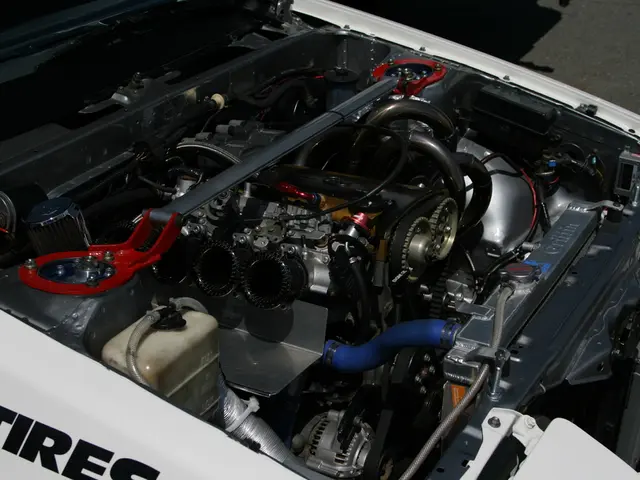Toyota's President, Sato, discusses the company's transition towards becoming a Mobility Company.
Toyota Embraces Carbon Neutrality and Elevates Mobility
In a significant move towards a greener future, Toyota, led by President Koji Sato, has unveiled an ambitious plan to achieve carbon neutrality by 2050 while enhancing the value of mobility for society.
President Sato, a lifelong car enthusiast, is committed to promoting the popularization of electrified vehicles to reduce CO2 emissions. His goal is to continue to pursue ever-better cars with Chairman Toyoda and Morizo.
Toyota's new management structure, themed "inheritance and evolution," began on April 7. The company aims to transform into a mobility company, adopting a new management style of "simultaneously and organically working as a team."
At the heart of Toyota's strategy is a comprehensive, multi-technology, and multi-pathway approach to achieve net zero emissions. The company aims to reduce average CO2 emissions for vehicles it sells worldwide by 33% by 2030 and by more than 50% by 2035 compared to 2019.
Toyota is expanding its electrified portfolio, including hybrid electric vehicles (HEVs), plug-in hybrid electric vehicles (PHEVs), battery electric vehicles (BEVs), and fuel cell electric vehicles (FCEVs). By 2025, Toyota plans to offer at least 70 electrified products worldwide, promoting a balanced approach rather than focusing on a single technology.
Hydrogen and fuel cells play a crucial role in Toyota's strategy. The company is advancing fuel cell technology jointly with partners such as BMW and cooperating with other automakers like Daimler, Mitsubishi Fuso, and Hino to develop advanced technologies, promote commercial vehicle electrification, and build a hydrogen society.
Toyota is also working to promote electrified vehicles and reduce CO2 emissions with a focus on leaving no one behind, including in emerging markets. Cars of the future will provide seamless mobility experiences that are connected with other mobilities, as well as provide new value for cars as part of the social infrastructure.
President Sato is determined to practice team management, leveraging the power of the 370,000 Toyota associates, suppliers, and dealers. He wants to share the joy of car-making with many colleagues and create cars that make customers smile even more.
Toyota is preparing for the future by developing next-generation BEVs and creating new business models. The company is also emphasizing the shift towards renewable energy sources like solar and wind, as demonstrated by Toyota Motor Philippines achieving 100% renewable energy-powered plant operations.
President Sato's most important values for Toyota are "making ever-better cars." Cars connected to society will be closely connected to various services that support people's daily lives, such as telecommunications and finance. As cars become more electrified, intelligent, and diversified, they will become more connected to society.
Toyota's environmental vision extends beyond just zero emissions, aiming to create new value by addressing broader societal issues such as safety, connectivity, and accessibility through its mobility solutions. This reflects an inclusive strategy to ensure carbon neutrality benefits all stakeholders and regions.
Cooperation with global partners is central to advancing carbon neutrality goals and enhancing the value of mobility to society. This includes partnerships to strengthen CASE (Connected, Autonomous, Shared, Electric) technologies and collaborative ventures to transform commercial vehicle fleets towards zero emissions.
President Sato emphasizes this integrated vision, stating that Toyota will work alongside partners with shared commitments to achieve carbon neutrality while transforming mobility to address future social challenges dynamically and inclusively.
Read also:
- Indian Oil Corporation's Panipat Refinery secures India's inaugural ISCC CORSIA accreditation for Sustainable Aviation Fuel production
- Rapid Charging Stations for Electric Vehicles Avoiding Grid Overload
- Mandated automobile safety technologies in the EU may be deemed "irrational," "erratic," and potentially dangerous, experts caution.
- Increasing Trend Downthe Globe: A Growing Number of Individuals Opt for Electric Vehicles Over Long Distances







